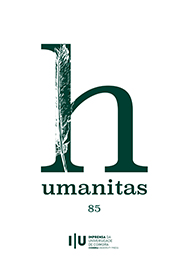The spectator. Is he a comical type?
DOI:
https://doi.org/10.14195/2183-1718_85_4Keywords:
spectador, Aristophanes, Acharnians, Thesmophoriazusae, FrogsAbstract
Among the testimonies we have of ancient Greek theatre, the spectator is undoubtedly the agent we know least about. Even so, we are certain that the audience was numerous and heterogeneous – in age, origin, cultural background and, therefore, expectations. Ancient comedy opens up an important angle of vision in this respect, firstly because of the direct appeals it makes to the spectators, in this case extra-scenic spectators, those who occupy the theatre seats. But in addition to this evidence, there is another type of testimony, involving the intracenic spectator, the one who intervenes within the theatre fiction as a character. The cases of Dicaeopolis in Acharnians, Euripides in Thesmophoriazusae and, above all, Dionysus in Frogs are particularly expressive.
Downloads
Downloads
Published
Issue
Section
License
Copyright (c) 2025 Humanitas

This work is licensed under a Creative Commons Attribution 4.0 International License.
Authors retain copyright and grant the journal right of first publication with the work simultaneously licensed under a Creative Commons Attribution License that allows sharing the work with recognition of authorship and initial publication in Antropologia Portuguesa journal.










